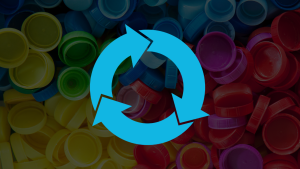Microwaves could be the future for plastic recycling
It’s been almost a decade since Jocelyn Doucet first experimented with recycling plastic waste in a microwave.
Now he says the technology derived from those early efforts will make it possible to produce plastic almost exclusively from recycled materials.
“We’re consuming more and more plastics,” says the Quebec-based engineer and founder of Pyrowave, a company pioneering microwave-based plastic recycling technology. “Yet there are not that many solutions to address the end-of-life problem, and this is what we’re proposing.”
The technology is so promising it has caught the attention of French tire giant Michelin. Last year, the company announced a partnership with Pyrowave to build a microwave recycling system for tires. It will be the first time Doucet’s technology is used on a commercial scale.
Most recycling in Canada today is mechanical, where plastics are shredded before being melted down to make new, usually lower-quality, products. For the process to be viable, the stream of plastics entering the processing facility needs to be clean and well sorted, which poses huge logistical challenges. Pyrowave’s technology then uses high-powered microwaves to break clean polystyrene — a common plastic used to make everything from yogurt cups to keyboards — into molecular components, or monomers, that manufacturers can use to create entirely new polystyrene plastic.
Simple as it sounds, the approach is novel. Few researchers had successfully used microwaves to break plastic into its constituent parts until Doucet, who has a PhD in chemical engineering from the Polytechnique de Montréal, took up the challenge with a team in 2009.
At the time, he was working on food waste technologies and wanted a new challenge. “We started getting approached for plastic waste,” he says. Plastic recycling was something new.
He wondered if pyrolysis could be used in the recycling process. Pyrolysis is a chemical process that burns carbon-based materials like wood or plastic without oxygen to remove the material’s hydrogen and oxygen molecules, leaving nothing but carbon. It’s ancient — Egyptians used pyrolysis to make charcoal.
Doucet thought a modified version could be used to recycle plastic.
“Very quickly, we fell on a microwave unit in the lab and started playing with microwaves,” he said. They found high-powered microwaves worked — an exciting discovery for the environmentally minded team.



